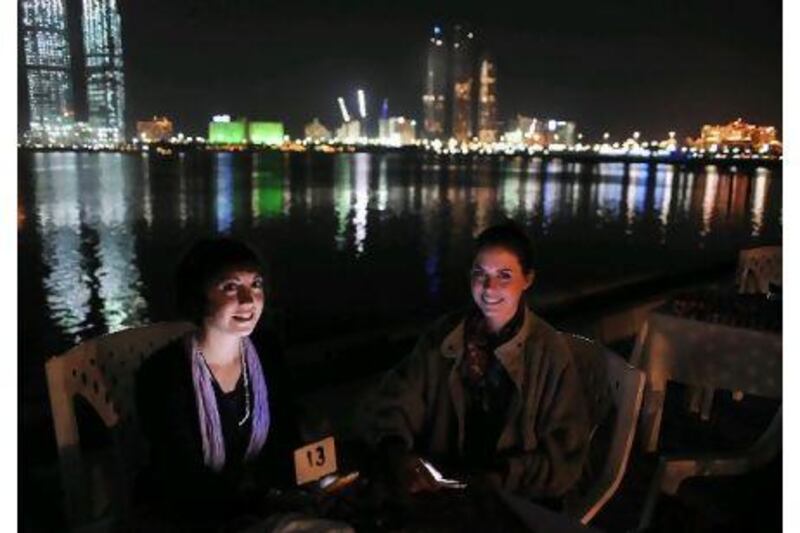AL AIN // A quest to save wild camels from being culled in Australia brought three filmmakers to the UAE on a mission to understand the impact of the creatures and their products on the Arab people.
A team from the What Took You So Long Foundation (WTYSL) visited the Al Dhafra Festival and met with camel farmers and researchers as part of their globe-trotting expedition, Camel Cheese 2010.
The filmmakers Sebastian Lindstrom from Sweden, Alicia Sully from the US and Philippa Young from the UK visited 15 countries in the past seven months, trekked across the Sahara and spent a night on a noodle house's steps in Hong Kong when their budget ran low.
The adventure formed part of a project to share their acquired knowledge with the world, in particular Australia, where the culling of feral camels is ongoing.
The team hope that their documentary will help the Australian government and its people see the benefits of preserving and utilising the animals, and stop the killing.
"The camels are not native to Australia," said Ms Young, the documentary's writer and co-producer. "They were brought over 150 years ago from Pakistan and Afghanistan by the British for desert expeditions, for reconstructing the railroad. When they weren't needed any more they were let free.
"That was a very big mistake as they had no natural food, no natural predators, and we've now heard that the latest study says there are one million, and their population doubles every nine years.
"This spells a huge disaster for Australia. They were ruining the crops, going into villages, attacking people.
"It was a kneejerk reaction from Australia to kill them. They are taking helicopters and machine guns and shooting them from trucks," said Ms Sully, a former Peace Corps Volunteer who served in Uganda.
"The Australian people may not understand their benefits. They were domesticated before and they can easily be domesticated now.
"They can be a vessel of creating a heat-stable anti-venom, and the health benefits of their milk are quite astonishing. Research has been carried out that found camel milk when fed to dogs and rats cured their diabetes. There are so many benefits to preserving them and stopping the culling."
Their expedition has taken the three filmmakers to Mongolia, China, Kazakhstan, Kyrgyzstan, Kenya, Somaliland and elsewhere, before arriving in the UAE for the Al Dhafra Festival.
"The festival was absolutely amazing," the women agreed.
"We saw the camel beauty contests and the races and met some very knowledgeable people," said Ms Young. "It was a great source of information."
They spent a day at Camelicious, a company that has put camel milk on the shelves of every major supermarket in the UAE, and interviewed the person who provides Camelicious with their camels.
They also visited Dr Louis Laleye, a camel milk researcher and UAE University professor, before leaving for Oman. While in the UAE they slept at friends' homes in comfortable beds, a luxury given their cash restrictions.
The film's US$8,000 (Dh29,300) budget was exhausted long ago, and dependent on grants and donations, the team spent several nights homeless, unable to pay for a hotel.
"We had to conserve money," said Ms Scully. "We spent the night on the steps of a noodle house, slept in bus stations, in trucks, on people's couches.
"It's been an adventure and one with an important message."
On its website, WTYSL states that its mission is "to film, educate and connect. WTYSL documents and raises awareness of unsung issues, stories and people".
It added: "What we learn in the field we talk about in lectures, workshops and conferences. We draw on our extensive worldwide networks for collaboration, innovation and creative exchange.
"Our vision is to build film as a medium for social change and something every social business utilises effectively to send their message to the watching world.
"Engage, get online and make waves."
The foundation's website is www.whattookyousolong.org.





